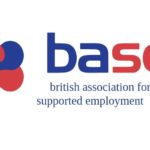The APPG for Schools, Learning and Assessment have released their latest report: Towards a fairer, more useful and fit-for-purpose way to assess children and young people in the 21st century, after launching their inquiry into assessment reform in November 2022.
Evidence was gathered from a vast range of university based academics who reported on their recents findings of England’s assessment systems, as well as education campaign groups, think tanks and education consultants. Evidence was also heard from academics with expertise in assessment reform taking place in Australia, Norway and Singapore.
Primary and secondary school heads and teachers, parents and post-16 students, all with first-hand experience of current assessment systems in England also shared their evidence.
Key Findings
The impact of high stakes assessments.
- All evidence received by the APPG made clear that assessment in its current form causes widespread damage to the curriculum at both primary and secondary. Anxiety was also expressed over the way in which assessment and its inextricable link to school performance has resulted in the narrowing of the curriculum and ‘teaching to the test’. At secondary level, the higher value attached to subjects which make up the EBacc and boost Progress 8 scores has resulted in schools dropping lower-valued, creative and applied subjects and modern foreign languages. At primary school, concerns were raised over the excessive testing of children. There were particular concerns over children being taught little else but English and maths in preparation for the key stage 2.
- Over 3,750 parents surveyed expressed that they thought GCSEs were not a ‘meaningful measure of young people’s capabilities’ and most felt that there was too much focus on academic rather than vocational qualifications. 75% of parents supported the idea of a learner profile, which records a young person’s wider skills, academic qualifications and other achievements and travels with them as they move through school.
- The impact of assessment on mental wellbeing – The 2022 Youth Voice Census showed that 49 per cent of the 4,000 young people (11–30 years) thought that exams and assessments impacted their mental health negatively. In her foreword to the Youth Census report, Laura-Jane Rawlings, CEO of Youth Employment UK, describes the “escalating mental health emergency” among young people. This report stresses the level of concern expressed to the inquiry about the impact of ‘high stakes high pressure’ character of competitive education systems on the mental health crisis.
Accountability
- The ASCL argues that results in national assessments should play only a ‘proportionate role’ in how schools and colleges are held to account.
- Students who learn differently are disadvantaged. An accountability system reliant on formal exams overlooks the range of important skills young people need post-school. Exams do not credit creative problem-solvers excellent communicators, even though these are skills that employers also look for.
- SATs – measuring for accountability or for learning : As one school head told the ICAPE research team, SATs “are a test of how well the school plays the system, not what the children can do’’.
Alternative approaches to assessment
- International perspectives: A professor from Nanyang Technical University in Singapore stated ‘’Covid showed us that qualifications are no guarantee for a job and that lifelong learning and adaptability – real skills – are much more important in the long run’’.
- In Norway, a professor explained her country’s focus on encouraging students to become active learners rather than passive recipients of grades.
- Edge proposes an approach which would reduce the high stakes nature of formal exams – from one determined by age to one that is more responsive to the ‘stage’ that individual learners have reached. Using online adaptive assessments, GCSEs would be taken at any point during the 14-19 phase of education. In this way, rather than formal ‘make or break points’, GCSE /level 2 assessments would serve as progress checks of learning development with students acquiring different levels for their various subjects as they travel through upper secondary.
- ASCL’s written submission proposes replacing SATs with two tests at two key points during primary: a phonics check in year 1 and an end-of-primary assessment to replace KS2 SATs using online adaptive assessments.
Recommendations
Based on the evidence, we are able to make the following recommendations. Of these, three recommendations are considered urgent:
At primary level:
- An alternative to SATs should be looked at – this could be based on pupil sample data with national standards but not high stakes tests. School heads and teachers should be trained to evaluate pupil sample data so that they understand the areas in which their school is doing well compared to other local schools and schools nationally, and where their school may need additional support to improve.
At secondary level:
- A consultation is launched with the objective of designing a secondary baccalaureate – The baccalaureate should include academic, vocational/technical and creative subjects. The consultation should also consider different methods of assessment best suited to the new baccalaureate.
- A new qualification in English and maths designed for those not taking maths and English as main subjects – The new qualifications should be designed to qualify all learners, up to the age of 18 and who are not otherwise studying for a qualification in English and maths, in essential literacy and numeracy skills in preparation for further study or employment.
In addition, we recommend that:
- School league tables should be replaced by a new system of school accountability to include broader information about a school, including its strengths and areas of improvement.
- Further research should be undertaken into the potential benefits and risks of the use of technology for assessment to ensure that newly emerging assessment methods are equitable, valid and reliable.
- A study of digital learner profiles is conducted to evaluate their use at both primary and secondary level. Populated throughout the learner’s school journey, digital learner profiles should be transferable.
Our Commentary
Young people have consistently used the Youth Voice Census to tell us that assessments cause them anxiety and do not support them in feeling prepared for the future.
We welcome the recommendations to consult on the design of the secondary school offer and assessment in line with broadening the curriculum, bringing technical and academic qualifications together and reviewing assessment.







